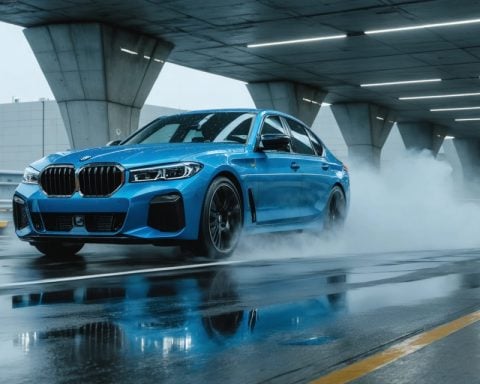In the rapidly evolving realm of automotive technology, the humble SUV is transforming into an intelligent powerhouse on wheels. Enter the era of smart SUVs: vehicles that are redefining the driving experience with cutting-edge innovations.
With the integration of artificial intelligence, modern SUVs are becoming more than just a means of transportation. Advanced systems enable these vehicles to learn from your driving habits, optimizing fuel efficiency and personalizing comfort settings to create a bespoke journey tailored to your preferences. Imagine an SUV that knows your favorite driving routes, adjusts the climate automatically, and even pre-orders your coffee as you approach your usual café.
Safety is at the forefront of this technological revolution. Smart SUVs are equipped with features like autonomous emergency braking, lane-keeping assist, and adaptive cruise control, which promise to make roads safer. These technologies can react faster than human reflexes, potentially reducing accidents significantly.
Moreover, the environmental footprint of SUVs is shrinking thanks to the surge in electric and hybrid models. These eco-friendly vehicles are equipped with energy-efficient drivetrains and regenerative braking systems, contributing to a greener planet without compromising on power or performance.
The SUV of the future is not a dream; it’s a reality in the making. As these vehicles continue to evolve, they are set to offer unparalleled convenience, safety, and sustainability, promising an exciting future for motorists around the globe.
The Next Generation of Smart SUVs: A Glimpse into the Future
The automotive industry is witnessing a groundbreaking transformation with the integration of advanced technologies into the mainstream SUV market. As smart SUVs emerge as the frontrunners in the race to innovate, they are setting new benchmarks in terms of technology, sustainability, and user experience. Let’s explore some new insights and innovations shaping the future of smart SUVs.
AI-Driven Features and Use Cases
Smart SUVs are increasingly adopting artificial intelligence (AI) to enhance the driving experience. AI-driven predictive maintenance systems are now available, which can anticipate parts failure before it happens, notifying owners to take preventive action. This not only saves time and money but also boosts the vehicle’s reliability and owner satisfaction.
New Trends and Insights
The trend toward electrification in the SUV sector is not merely about reducing carbon footprints but also about redefining performance parameters. Consumers are showing increased interest in plug-in hybrid SUVs, appreciating their blend of efficiency and power. Concurrently, software updates allowing over-the-air improvements to vehicle systems are becoming standard, ensuring that SUVs remain up-to-date with the latest features and security patches.
Security Aspects in Smart SUVs
As vehicles become more connected, cybersecurity has emerged as a significant focus area. Manufacturers are investing heavily in cryptographic solutions and robust security protocols to protect user data and guard against hacking. The industry is adopting practices aligned with cybersecurity frameworks to ensure the vehicle’s digital infrastructure is as secure as its physical components.
Comparisons and Specifications
When comparing traditional versus smart SUVs, the latter offer enhanced infotainment systems, voice-activated controls, and real-time navigation updates. Smart SUVs typically come with larger displays and intuitive interfaces, making every journey dynamic and tailored to the driver’s needs.
Sustainability and Environmental Impact
New hybrid and electric SUVs are leveraging lightweight materials and aerodynamic designs to maximize range and efficiency. These improvements align with global sustainability goals, ensuring that SUVs contribute positively to environmental conservation while continuing to deliver robust performance.
Predictive Trends for the Smart SUV Market
Market analysts predict a significant surge in consumer demand for smart SUVs equipped with full autonomy and integrated smart home connectivity by 2030. This shift is expected as more consumers prioritize technology integration and sustainability in their automotive choices.
Pricing Considerations
While the initial investment for smart SUVs may still be higher compared to traditional models, decreasing battery costs and advancements in technology are expected to lead to more affordable models in the next few years. Tax incentives for electric vehicles further reduce the financial burden, making smart SUVs an economically viable choice.
For more information on the innovations and future of smart SUVs, visit the main domain of automotive technology giants like Toyota or Tesla.
As smart SUVs continue to evolve, they stand at the intersection of technology, sustainability, and safety, heralding a new dawn for automotive innovation.













